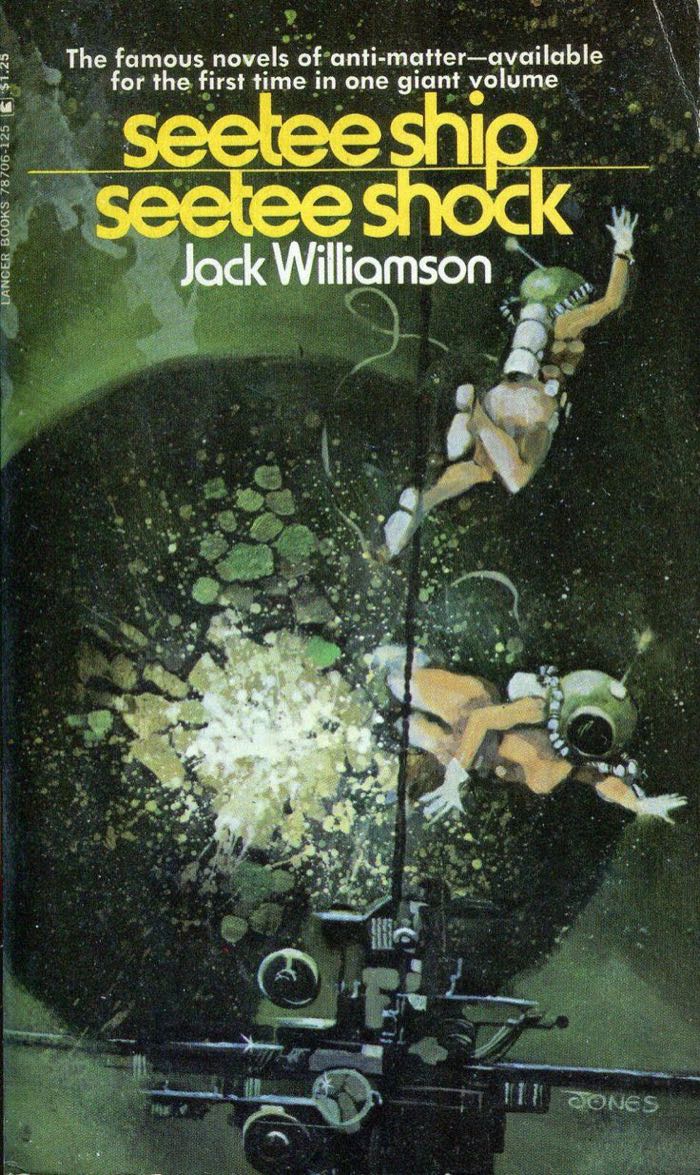Seetee Shock
Reviewed date: 2004 Jun 05
Rating: 3
226 pages
Seetee Shock is the sequel to Seetee Ship. Jack Williamson crafts an exciting story, full of action and intrigue.
Synopsis: Nick Jenkins works with a group of engineers on asteroid Freedonia, attempting to build the first CT reactor. A contraterrene matter (CT, or antimatter) reactor will provide enough power for the entire solar system, freeing people from the tyranny of limited fission power monopoly controlled by the Interplanet corporation. A surprise attack on Freedonia by unknown attackers results disables the entire staff save for Nick Jenkins. The entire staff, including Jenkins, is exposed to a lethal dose of radiation. They will all die within two weeks.
Now it up to Nick Jenkins to track down the attackers, prevent the outbreak of a CT war, and finish the CT reactor in order to provide free power to the solar system. And he must do so before he dies of radiation sickness.
The Good: For a 1950s novel, the characters are surprisingly well-developed. Idealistic, yes, but their motivations are believable. There is plenty of action, but plenty of political intrigue too. And the best part is that Williamson doesn't succumb to the fallacy so common in early science fiction, that human problems can be solved with technology alone.
"The trouble is what they teach you at school. They make everything seem too easy. They teach you astrogation and nucleonics and paragravitics and everything else in spatial engineering. You think you can make all the planets into scientific wonderlands. But you're wrong, Nicky."
Brand's red, rawboned face, for an instant, seemed sadly wistful.
"Because they don't teach you practical politics or real economics. The technical problems are easy, but they don't teach you human nature. And that's the real barrier to the sort of wonderland that young engineers dream about, Nicky. The blind ignorance and crushing stupidity and clutching greed and sheer cowardice of human beings!"
The Bad: The book starts well, but the end doesn't hold up. Like much early science fiction, it is too idealistic. The end is too trite, too upbeat, too unrealistic. Still an interesting read, but the ending brings my rating down from a four to a three.
